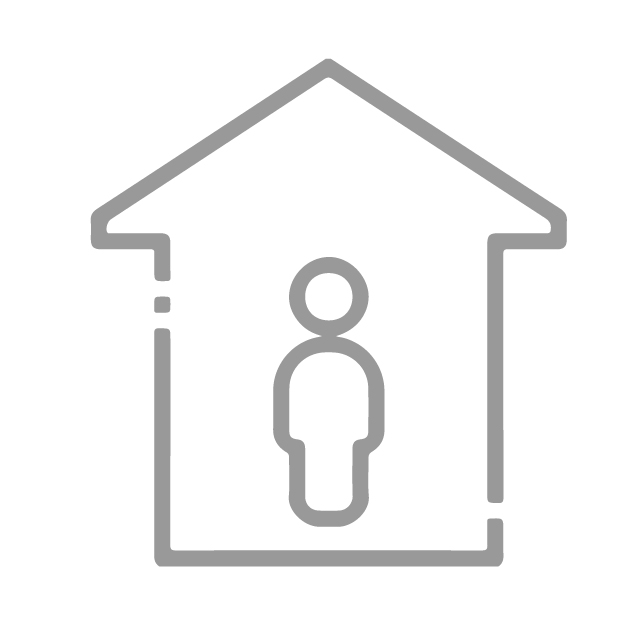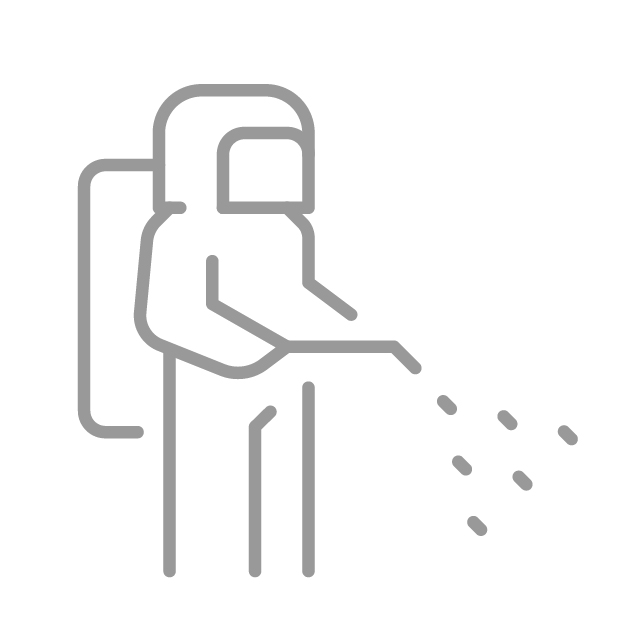Initiatives to combat Covid-19

Surveillance and Contact tracing
UAE utilizes its latest technology to make sure that people who are COVID-19 positive follow recommended guidelines of isolation and quarantine advised by the government authorities. This is possible to achieve due to UAE’s wide network coverage and usage of mobile phones among the population. World Economic Forum’s Travel & Tourism Competitiveness Report 2019 showed that UAE is first globally in mobile-broadband subscriptions and network coverage, and second in mobile-cellular telephone subscriptions. Existing digital infrastructure allowed the country to successfully implement surveillance and contact tracing policies.
April 8
The
TraceCovid app detects other devices that have the same app and shares proximity data with it. When two users who have installed the TraceCovid app encounter one another, a ‘Secure Tracing Identifier’ (STI) is exchanged and stored in their respective phones.
April 13
The
DOH RemoteCare app is a free digital healthcare solution through which people can receive healthcare at their own homes, without visiting a hospital or clinic physically.
April 16
Ministry of Interior adopted the smart helmet to monitor people who may be infected with the novel coronavirus, COVID-19. The smart helmet is equipped with a thermal camera, which can help the authorities in detecting infected people from a safe distance.
April 25
UAE health authorities launch
Alhosn mobile app used for contact tracing and surveillance of those who need to be isolated.
The app is available in Arabic, English and Hindi. The app is one of
several technological solutions to curb the spread of COVID-19 in the UAE.

Containment
UAE’s efforts in containing the spread of COVID-19 started in early March with limiting gathering of people. Implementation of online schooling, remote work, and closure of public places early in the spread of COVID-19 allowed UAE to have the number of cases under control. In late March, UAE’s Ministry of Health and Prevention and the Ministry of Interior launched a large-scale National Disinfection Program during which a curfew was introduced. The program ensured sterilization of public spaces, including public transport, as a preventive measure to curb the spread of COVID-19.
March 16
Mosques, churches, temples and other places of worship
close.
March 21
Beaches, parks, and pools, parks, movie theatres, and gyms
close.
March 22
Announcement of closures of restaurants, cafes, and food and beverage outlets.
March 23
Closure of malls, restaurants serve deliveries only, groceries remain open.
March 27
Ministry of Health and Prevention and the Ministry of Interior start
National Disinfection Program; imposed curfew from 8 pm to 6 am. Program
extends until April 4th.
Dubai launched
online permit system – residents have to register before stepping out of the house even for essential needs. Violators are fined or imprisoned.
May 11
Abu Dhabi Police introduces an
online permit system for people who have urgent needs to go out during the hours of National Sterilization Program (10 pm – 6 am).
May 17
Abu Dhabi City Municipality distributes
200 thermal scanning devices to the managers of residential areas as a measure of early detection of COVID-19.
June 28
As an enforcement measure to abide by COVID-19 regulations, UAE government warns citizens about the fines for offenders for those who host gatherings, do not maintain social distancing, fail to comply with quarantine, among other rules. If an offence is committed for the third time, a person could be jailed for up to 6 months or fined for a minimum of 100,000 AED (27,000 USD).

Mental health support
Numerous measures were taken by the government and private sector entities to support UAE residents’ psychological and mental health needs during this stressful time. UAE recognizes tough situations that people can be put in due to COVID-19 and made sure both residents and tourists stranded in the UAE have an access to free support services, such as hotlines, informational webinars, and counselling. Services were provided across multiple platforms in several languages.

Treatment and testing
One of UAE’s key measures to prevent the spread of COVID-19 cases is mass testing which allows to identify people who are positive, isolate them, and prevent further spread of the virus. Following the advice of World Health Organization, UAE made its mission to find the virus before its spread. UAE tested not only those with symptoms, but also asymptomatic cases so that healthcare professionals can “Find, isolate, test and treat every case, to break the chains of transmission” as advised by the WHO Director General Dr Tedros Adhanom Ghebreyesus. Since the start of the COVID-19 pandemic, the UAE has conducted 4,461,205 that have allowed the country to diagnose 56,711 total cases as of July 19. The rate of people who tested positive is just 0.6%, which is considerably lower than the global average and one of the lowest total cases-to-tests rates in the world.
April 13
UAE sets up mass
testing across the country’s seven emirates with a capacity of testing 500 people per day.
Smart solutions to fight COVID-19 -
Click here to view
Ministry of Health and Prevention (MoHaP) launched a chatbot service titled
Virtual Doctor for COVID-19. People can use the service to assess whether their symptoms could be associated with the novel coronavirus, COVID-19.
Abu Dhabi Government is using electronic wristbands as part of its effort to enforce isolation and reduce the spread of COVID-19. The device serves as a tracing and monitoring tool and is linked to the COVID-19 testing and tracing app, Al Hosn and will be used to make sure that self-isolating people actually stay at home.
AI in taxis to curb the spread of COVID-19 - AI technologies have been employed to monitor and verify the compliance with the preventive measures undertaken to limit the spread of the Coronavirus. The technology can also report offences such as the failure to observe physical distancing, and the improper wearing of face masks, thanks to video analysis feature

Government support
The UAE government recognizes economic hardships that individuals and businesses bear since the start of COVID-19 pandemic. An extensive economic stimulus packages for UAE businesses were first introduced in March and later in July to support services hit by the decline of revenue. The government also extends support to individuals who have no means to support themselves in the form of free medical treatment and food. One of the highlight initiatives in this regard is “10 million meals” campaign run by Mohammed bin Rashid Al Maktoum Global Initiatives and Social Solidarity Fund Against COVID-19. To read the extensive list of UAE government’s measures during COVID-19 pandemic, read FCSA’s consolidated reports.

Containment during the ease of restrictions
Due to proven positive results to contain the virus, the UAE government started partial opening up of the economy in late April in Dubai and in late May in Abu Dhabi emirate. Health authorities allowed the gradual ease of restrictions provided that the number of cases do not spike and people follow necessary regulations and protocols. Dubai welcomed its first tourists after the borders’ closure on July 7th. The government ensured that the airport and carriers comply with safety protocols and passengers who were not able to get tested in their home countries can do it at Dubai airport.
March 25
The UAE closed all markets and shopping malls to combat the spread of the disease. Dubai has also imposed rules on movement with a nightly curfew from 8 p.m. to 6 a.m.
April 27
NCEMA announced easing of restrictions on movement in Naif and Al Ras areas in Dubai. Public movement in these areas will return to normal between 6.00 am and 10.00 pm and restrictions will be in place only between 10.00 pm and 6.00 am as with the rest of the emirate.
May 26
The Department of Culture and Tourism - Abu Dhabi has shared detailed guidelines with the emirate’s hotels in preparation for granting approvals to reopen the establishments’ restaurants, lounges, bars, beaches, pools and gyms.
June 23
Considering reopening of schools in September, UAE Ministry of Education issues protocols for educational institutions for 2020-2021 academic. Guidelines include limiting group activities, constant health monitoring, and frequent sterilization.
July 11
Abu Dhabi private hospitals announce they do not have
COVID-19 patients anymore
Passengers must carry a negative PCR certificate for specific
Emirates flights
UAE airlines’ websites have constant updates on flight schedules as well as information on what to expect upon arriving in Abu Dhabi or Dubai.
Reopening of UAE airports – safety decisions applying to all UAE airports, all aircrafts operators conducing flights from/to UAE airports.

UAE sources

International sources
